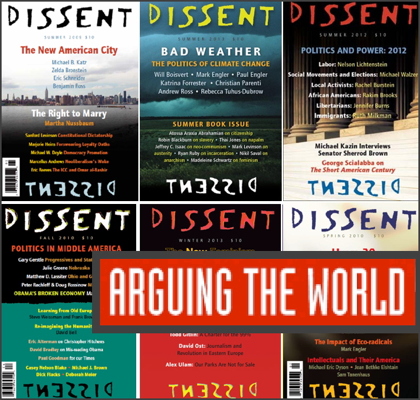A dispatch for the “Arguing the World” blog at Dissent magazine.
Published in Dissent.
You might remember Martin Luther King, Jr. as someone who railed against the triple evils of “racism, materialism, and militarism.” But according to Obama’s Department of Defense, “today’s wars are not out of line with the iconic Nobel Peace Prize winner’s teachings.”
This contention is advanced in an article by the American Forces Press Service, which the Pentagon is distributing for republication. Common Dreams did republish it—as an example of government shamelessness, correctly noting that you “can’t make this stuff up.”
The article concerns a speech by the Defense Department’s general counsel, Jeh C. Johnson, who stated, “I believe that if Dr. King were alive today, he would recognize that we live in a complicated world, and that our nation’s military should not and cannot lay down its arms and leave the American people vulnerable to terrorist attack.”
In fact, King did advocate that our nation’s military should and could lay down its arms, even though his detractors insisted this would mean leaving us vulnerable to attack by advancing Communist hoards in Vietnam that would inevitably overrun the world and extinguish the American way of life.
Johnson’s argument is really convoluted, and the article is worth reading in full. Of course, suggesting that the only options available to us in this “complicated world” are to support current U.S. policy in Iraq and Afghanistan or to roll over and let the terrorists have their way isn’t exactly engaging in good faith debate about our country’s overseas engagements. And there are other fishy things going on in the article as well. One curious part is its attempt to lay out Johnson’s credentials for making his far-fetched claims about MLK. It explains:
“Johnson is a 1979 graduate of Morehouse College in Atlanta, where King graduated in 1948. He also attended school with King’s son, Martin Luther King III, and was privy to the elder King’s speaking engagements there.”
I’m not sure that attending the same college as a notable person several decades later lends much expertise (to say nothing about being vaguely acquainted with their kids as a grade-schooler), but maybe that’s just me.
Outside of the Pentagon, MLK has endured a fair bit of abuse this year, most notably at the hands of Glenn Beck. As you will recall, the Fox News champ tried to claim King’s legacy for his “Restoring Honor” rally in Washington back in late August. It was pretty sad, and many commentators cried foul. Media Matters, for one, clearly documented why “Martin Luther King would have been on Glenn Beck’s chalkboard” were he still alive.
In a similar vein, Sean Wilentz did a nice job this fall of tracing the ideological roots of Beck and his brethren back to the John Birch Society and other far-right Birch-ite groups of the Cold War. The Birchers were none too fond of MLK, publishing a book in which King “is portrayed as an agent of a massive communist conspiracy to agitate among otherwise happy Negroes to foment revolution, or at least promote demands for more collectivist federal government intrusion.”
On balance I think the fact that you no longer see such attacks on King, and that Beck and the Pentagon will go to extreme lengths to align themselves with the civil rights movement leader, is a good thing. It is a testament to King’s unimpeachable credibility as a national hero. And having someone who was a social democrat, bold anti-militarist, thoroughgoing critic of American racism, and firm advocate of nonviolent civil resistance ranking up there with the founding fathers in our national pantheon is a wonderful thing for progressives, even if it requires regularly setting the record straight.
For those who want to read more about King’s stances on economic questions (a topic I wrote on last MLK Day), Beacon Press has just published a collection of King’s speeches on labor and economic justice, entitled All Labor Has Dignity. My copy hasn’t arrived yet, but I am looking forward to it.
